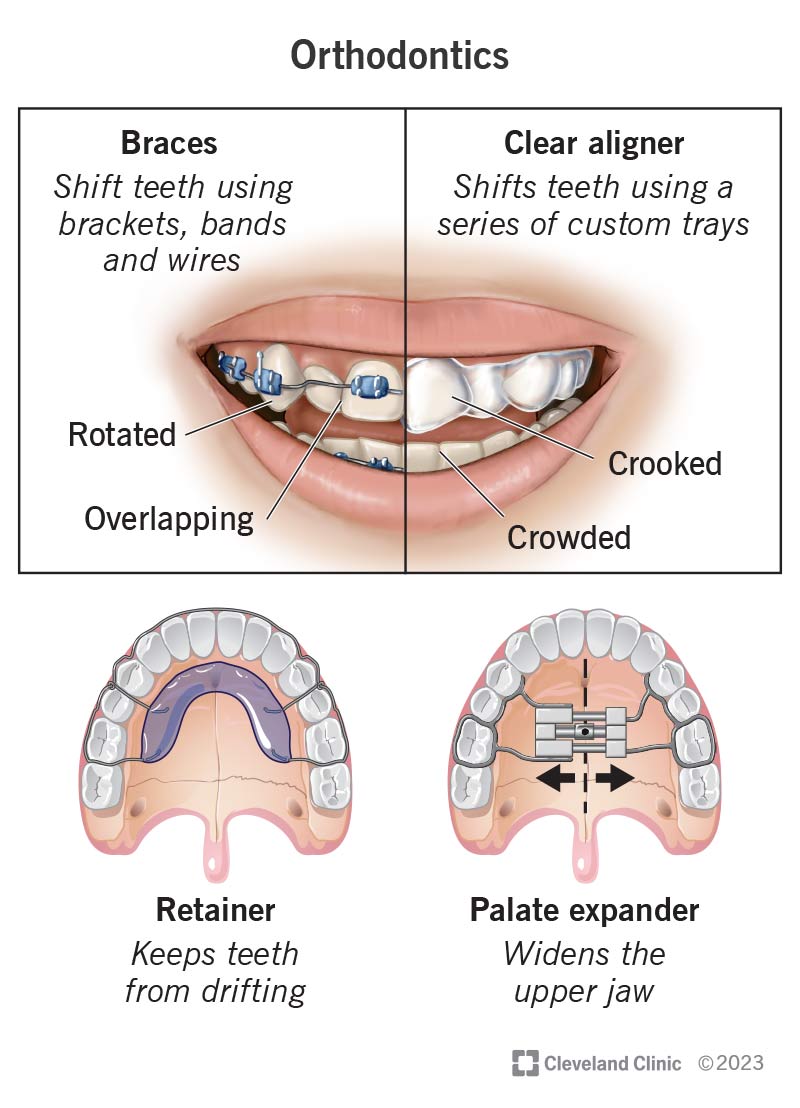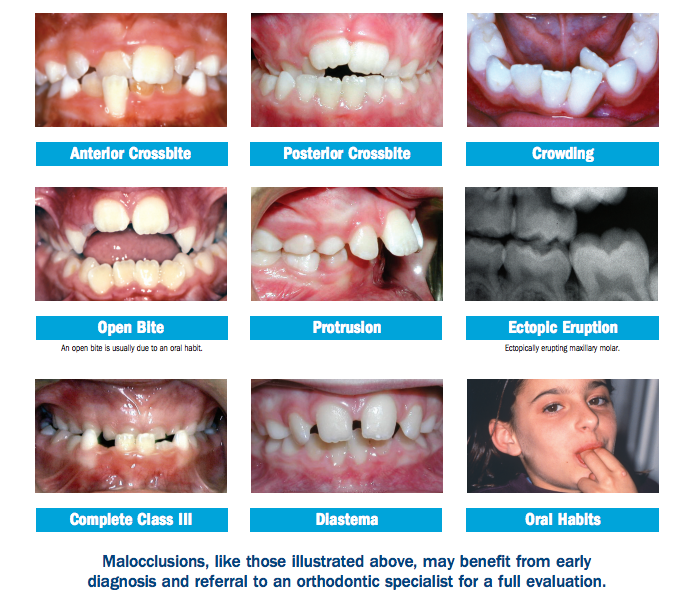9 Easy Facts About Causey Orthodontics Explained
9 Easy Facts About Causey Orthodontics Explained
Blog Article
Causey Orthodontics for Beginners
Table of ContentsWhat Does Causey Orthodontics Mean?Not known Facts About Causey OrthodonticsCausey Orthodontics Fundamentals ExplainedCausey Orthodontics - An OverviewA Biased View of Causey OrthodonticsNot known Details About Causey Orthodontics Not known Facts About Causey Orthodontics
What is the difference between a dental expert and an orthodontist? To respond to an inquiry that is commonly asked, both dental practitioners and orthodontists help people get much better oral health, albeit in different ways. It aids to keep in mind that dentistry is an instead broad science with various medical expertises. All dental experts, including orthodontists, treat the teeth, gum tissues, jaw and nerves.
You can believe of both medical professionals that deal with gum tissue and teeth troubles. The major distinction is that becoming an orthodontist needs a particular specialty in treating the misalignment of the teeth and jaw.
Not known Factual Statements About Causey Orthodontics
An orthodontist is a dental professional that has undergone training to specialize in the medical diagnosis, avoidance and treatment of irregularities in the jaw and teeth. They can also determine potential troubles in teeth placement that may create when conditions are left untreated (orthodontist expert).
This consists of all the needed education to come to be a basic dentist. According to the American Pupil Dental Association (ASDA), it indicates you will certainly require to have either a Doctor of Medicine in Dentistry (DMD) or a Doctor of Oral Surgical Treatment (DDS). To put it simply, orthodontists require to finish oral school and after that acquire an orthodontics specialized education.
Some orthodontists additionally get their masters in craniofacial biology. These programs concentrate on two details locations or techniques: Dentofacial Orthopedics: This study concentrates on directing teeth and jaw advancement.
Everything about Causey Orthodontics

 The overall goal of an orthodontist is to enhance a client's bite. Not everybody is born with straight teeth, and an orthodontist will certainly ensure that patients obtain uniformly spaced straight teeth.
The overall goal of an orthodontist is to enhance a client's bite. Not everybody is born with straight teeth, and an orthodontist will certainly ensure that patients obtain uniformly spaced straight teeth.
6 Easy Facts About Causey Orthodontics Described
The American Organization of Orthodontists suggests your very first check up by age 7. You'll require to see your orthodontist if you have an imbalance in your teeth, likewise recognized as malocclusion. Likewise, if you observe irregular bite patterns, a slightly irregular jaw, or when your teeth are chock-full, you will likely need orthodontic treatment.
At Advanced Orthodontics, we supply clients with a holistic therapy experience. Furthermore, we offer flexible treatment timetables, flexible repayment alternatives and a fun, satisfying experience. Call ( 480) 357-4900 today for even more information and routine an appointment.
An orthodontist is a dental expert trained to diagnose, protect against, and treat teeth and jaw irregularities. They fix existing conditions and are trained to identify troubles that may develop in the future. Orthodontists collaborate with people of any ages, from children to adults. Individuals frequently associate an excellent smile with health.
9 Simple Techniques For Causey Orthodontics
Malocclusion, or misaligned teeth, can result in oral problems, consisting of dental cavity, gum disease, and hard or unpleasant eating. Not every person is born with straight teeth. If you have a poor bite or big areas in between your teeth, you may intend to seek advice from a dental practitioner focusing on orthodontic care.
(Image Credit Score: DigitalVision/Getty Images) Orthodontists make use of taken care of and removable dental gadgets, like braces, retainers, and bands, to change the position of teeth in your mouth. Orthodontic therapy is for oral abnormalities, including: Jagged teethBite issues, like an overbite or an underbiteCrowded teeth or teeth that are also far apartJaw misalignmentThe goal of orthodontic treatment is to boost your bite.
About Causey Orthodontics

All orthodontists are dental professionals, but not all dental professionals are orthodontists. Orthodontic residency programs supply extensive, focused guideline for dental specialists. They focus on 2 areas: Just how to properly and safely move teeth How to effectively guide development in the teeth, jaw, and faceOnce an orthodontist has completed training, they have the option to end up being board certified.
Malocclusion leads to tooth overcrowding, an askew jaw, or uneven bite patterns. Malocclusion is normally treated with: Your orthodontist attaches metal, ceramic, or plastic square bonds to your teeth.
More About Causey Orthodontics
If you have just small malocclusion, you may have the ability to use clear dental braces, called aligners, rather of traditional braces. Some individuals require a headgear to aid relocate teeth into line with pressure from outside the mouth. After dental braces or aligners, you'll require to use a retainer. A retainer is a custom device that maintains your teeth in place.
Report this page